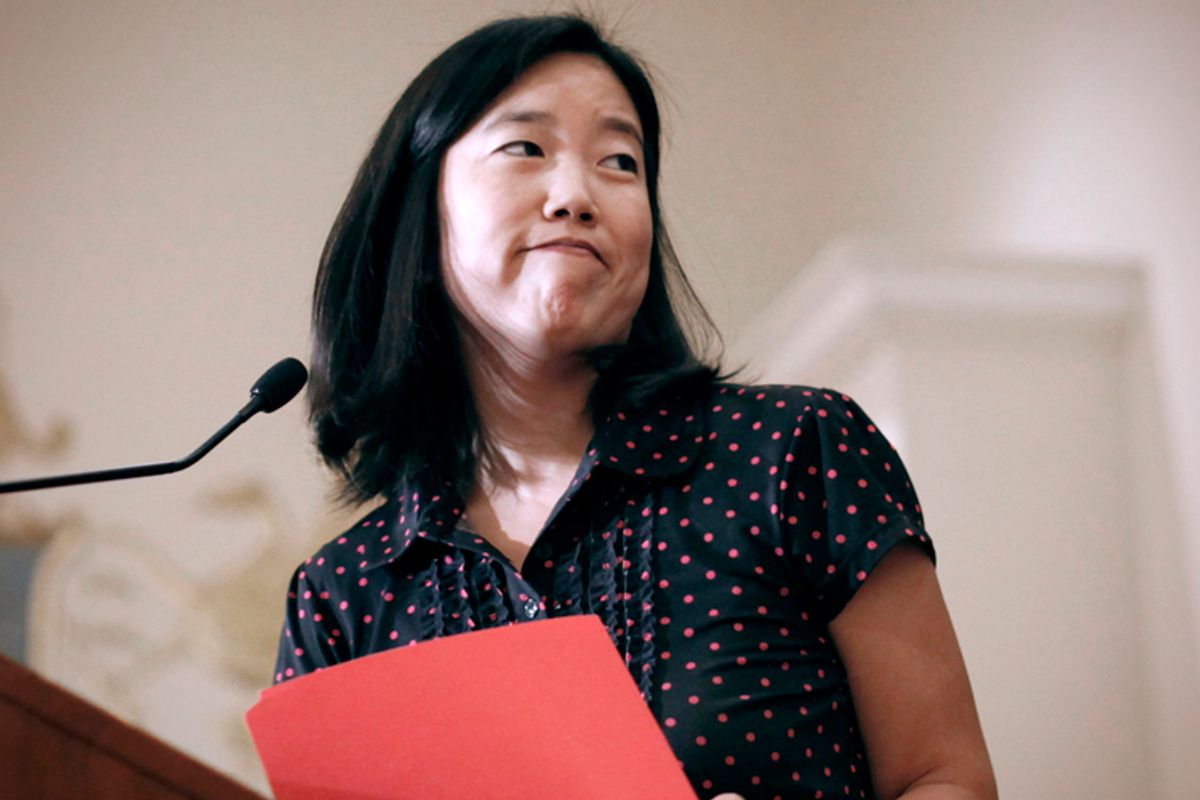 The education sector, long frustrated by transient fads that have failed to uplift decades of sub-par student achievement, thinks it has finally found its knight in shining armor: an omnipresent data archive that will track students from pre-school to graduation, noting every teacher and test score. Then it will tack that trail of data onto a person well after they leave school.
The education sector, long frustrated by transient fads that have failed to uplift decades of sub-par student achievement, thinks it has finally found its knight in shining armor: an omnipresent data archive that will track students from pre-school to graduation, noting every teacher and test score. Then it will tack that trail of data onto a person well after they leave school.
Enthusiasts say they hope the constant tracking will help policy-makers identify the precise factors that make a successful student, and foster the creation of well-informed education policy, while opponents worry that growing intrusiveness will normalize the mass surveillance and obsessive record-keeping of humans foretold in dystopian literature.
The $100 million repository that will catalog all the information is called inBloom, an initiative funded primarily through the Bill and Melinda Gates Foundation and a division of Rupert Murdoch’s News Corp.
The Department of Education is in the finishing stages of building a system to share student data with colleges and six other state agencies—a program known as “P-20,” which refers to the time span between entrance into pre-kindergarten and the workforce. Some of the other agencies that may have access to the data by 2015 include the Department of Labor, Health and Taxation and Finance, and the offices of Technology and Children and Family Services.
In addition to money from the Gates Foundation, the DOE has received $40 million from state and federal agencies since 2008 to construct the program, which has been spearheaded by Obama’s Race to the Top initiative. It has steadily expanded out of New York into the rest of the country. As USA Weekly reports, “forty-four states are synching data between schools and colleges, and 19 have connected workforce data, according to the Data Quality Campaign.”
"Data is painting a profile of a student that is richer and more valuable than ever before," said Jim Shelton, a U.S. Education Department official, to USA Weekly. He went on to dismiss the invasiveness of the program as a “small price to pay for progress.”
Parent and technology training specialist Brian Wasson has strong reservations: "As this develops, will they decide to use this data for more than research? I don't buy the rationale for it."

Shares